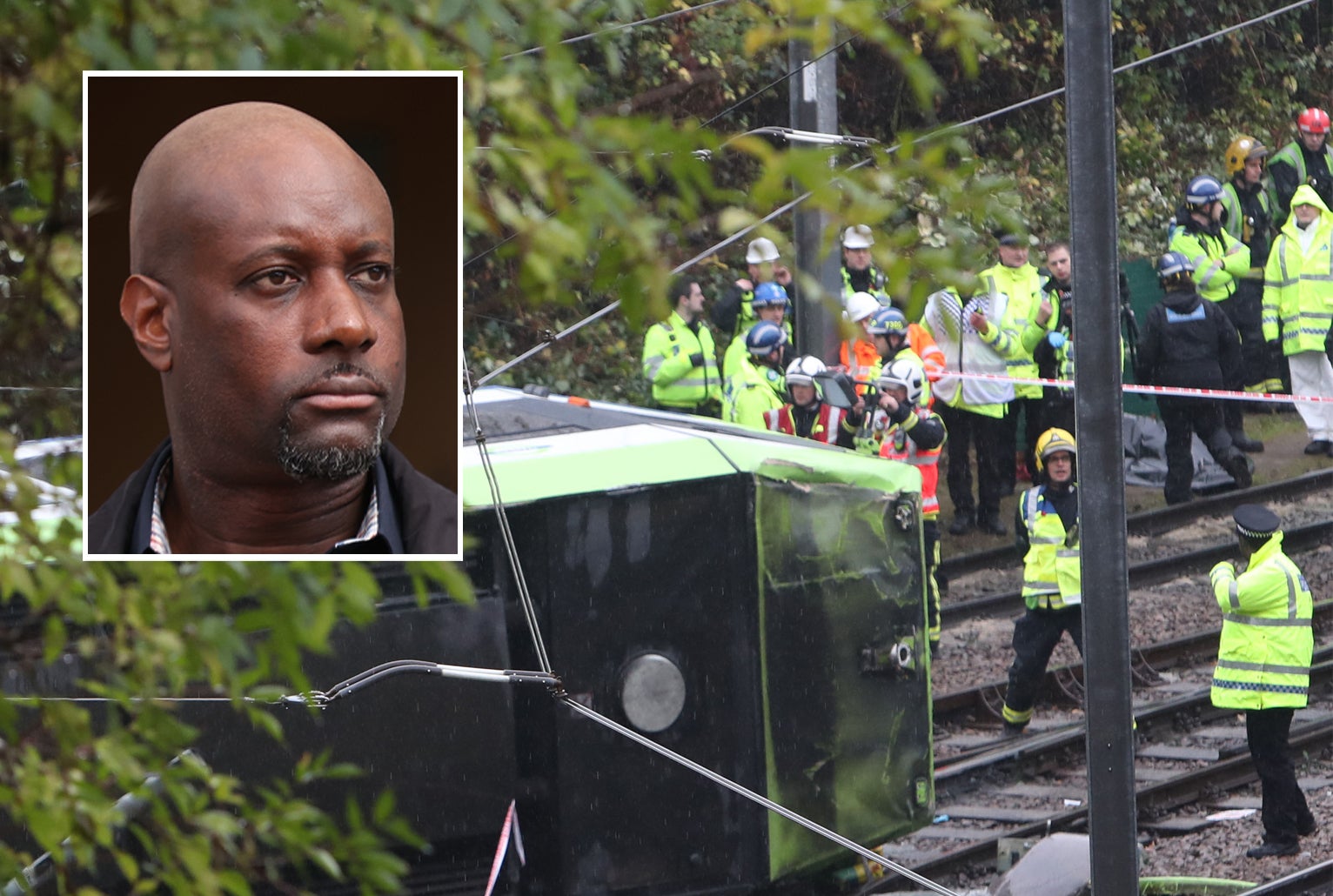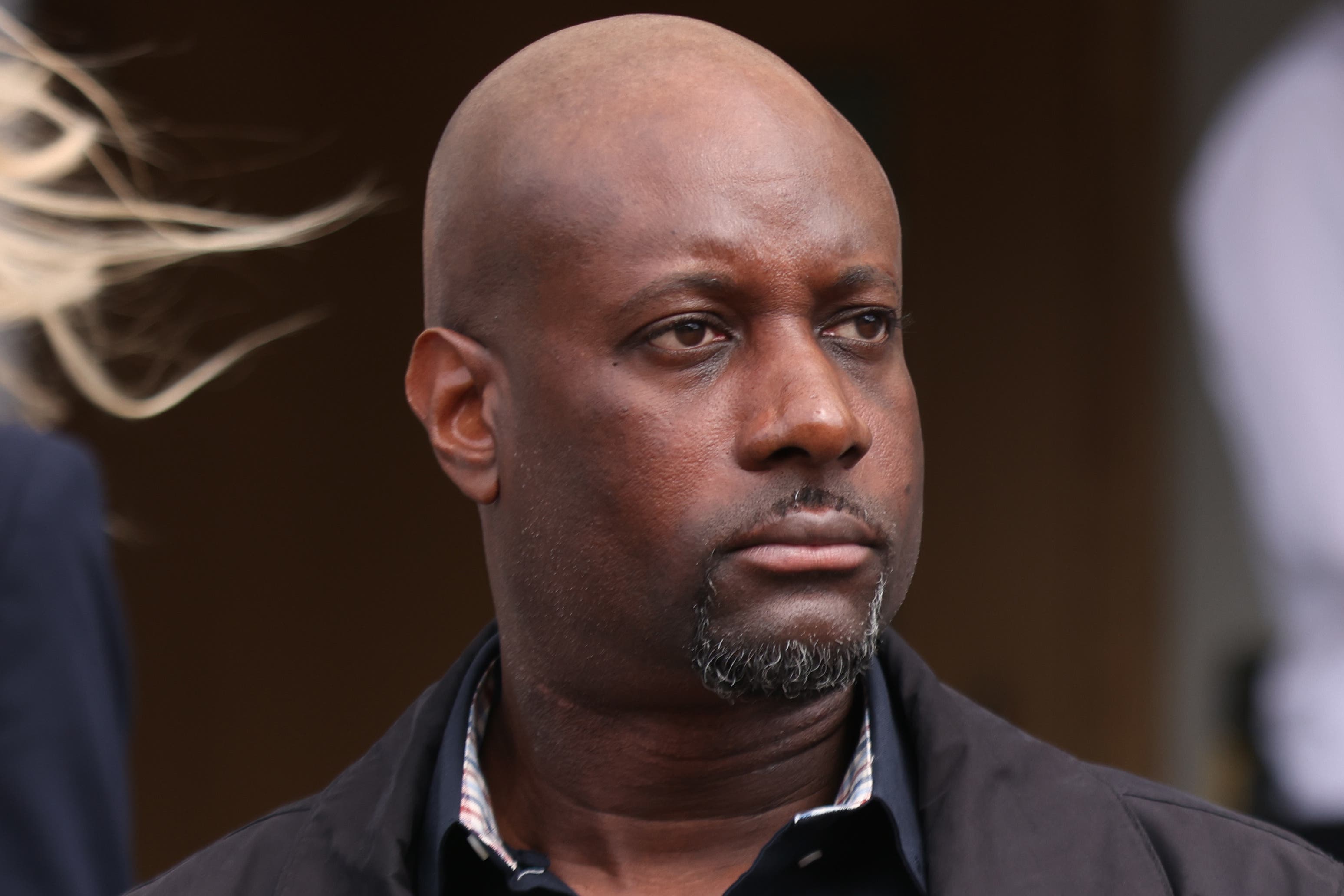Tram passengers ‘flung around like in washing machine’ as speeding driver attempted curve, jury told
Seven people died and 19 were injured when the tram derailed in south London

Passengers in the Croydon tram disaster were “flung around” as if in a washing machine after their driver attempted a curve at more than three times the speed limit, a court has heard.
Alfred Dorris, 49, is on trial at the Old Bailey over the derailment at Sandilands in south London on November 9 2016 in which seven people were killed and 19 more were seriously injured.
The prosecution allege Dorris failed to take “reasonable care” of the health and safety of himself and his 69 passengers on Tram 2551 on that day.
In an interview after the crash, Dorris claimed he had become “confused” and “disorientated” but denied he had fallen asleep or suffered a blackout, the Old Bailey was told.
Opening the case on Wednesday, prosecutor Jonathan Ashley-Norman KC said: “The seven deaths on the Croydon tram system early on the morning of 9 November 2016 are likely to persist in the memory of all those who were adults in the UK on that day.”
He said it had been a wintry rainy morning when Tram 2551 embarked on its route from New Addington to Wimbledon via East Croydon.
At a sharp left turn on the approach to Sandilands, drivers are instructed to reduce speed to 20 kilometres per hour to safely negotiate the curve, with a sign on the bend confirming it, jurors heard.
But Mr Ashley-Norman said: “The tram … did not reduce speed to 20kph to enable it to take the turn safely. Instead, the tram was travelling at in excess of 70kph when it entered the turn.
“At that speed it could not hope to hold the track. The inner wheels lifted from the track and the tram derailed.
“It tipped onto its side, causing those inside to be flung around as though, as one survivor put it, they were inside a washing machine.
“Windows smashed and doors were ripped off. Those who died were ejected through the broken windows and trapped between the overturned tram and the track.
“In a matter of seconds, tragedy was visited upon seven families who were bereaved, and many others who were seriously injured.
“For a want of attention on the part of the driver involved that morning, death and serious injury followed.”

The seven passengers who were killed were Dane Chinnery, Donald Collett, Robert Huxley, Philip Logan, Dorota Rynkiewicz, Philip Seary and Mark Smith.
The court heard there was no dispute that the driver Dorris was responsible for what happened.
Mr Ashley-Norman said Dorris would claim that “environmental and external factors outside his control” relating to the infrastructure around the Sandilands area combined to cause him to become “disorientated”.
The prosecutor said jurors would examine some of those factors, such as the signage on the approach to the bend and tunnel lighting.
In his interview after the crash, Dorris said: “I just remember coming over all disorientated like I just weren’t sure, you know, where I was. I was confused and then I got it in my head I was going eastbound towards Lloyd Park direction.
“I was upset, confused, you know, traumatised. I weren’t sure what, to be honest with you, I wasn’t sure what actually happened. It just sort of crept up on me.”
Mr Ashley-Norman told jurors they would hear evidence from sleep experts suggesting Dorris probably had a “micro-sleep”.
But he said the issue was not whether the driver fell asleep, but whether he took reasonable care for the health and safety of his passengers.
He added: “Mr Dorris was not solely responsible for health and safety failures at Sandilands.
“As we shall hear, others, principally Transport for London and Tram Operations Limited, also failed in the discharge of their health and safety duties in the running of the Croydon tram network. However, their failures do not exonerate Mr Dorris.”
Dorris, from Beckenham, south east London, denies a single charge of failing to take reasonable care at work under the Health and Safety at Work Act 1974.
The trial at the Old Bailey before Mr Justice Fraser is due to go on for up to five weeks.



